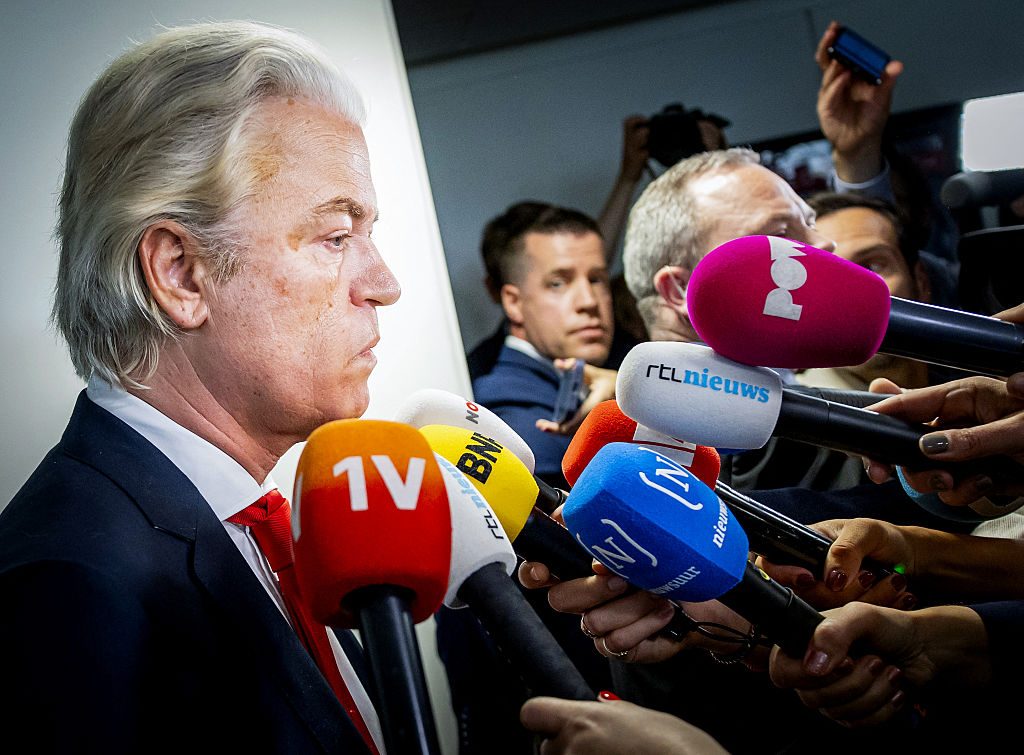Yesterday’s Dutch election produced another sighting of a rarely-seen species in European politics: the successful centrist anti-incumbent. Like Riikka Purra and the Finns Party in Finland, Geert Wilders has found out that, even as a Right-wing populist, governing can take a toll on your popularity. His Party for Freedom (PVV) declined from its tally of 37 seats at the last election less than two years ago, managing only 26 this time. It was virtually a foregone conclusion ahead of last night that Wilders would not be part of the next Dutch government, but he also didn’t manage to win the elections outright.
Instead, the main beneficiary was the socially liberal D66, which also won 26 seats in the 150-seat House of Representatives, up from nine in 2023. As of this morning, D66 was a couple of thousand votes ahead of Wilders’s party — the first time the party has come in first place since its foundation six decades ago. It sets up Rob Jetten, D66’s 38-year-old leader, to become the next Dutch prime minister. That will also be a first for the party.
By running the most energetic and effective anti-Wilders campaign of any party in the running, Jetten was able to hoover up disaffected voters from across the spectrum. Now, however, the real campaign — in the more military sense of the word — begins. This is the slog towards forming a viable coalition in the highly fragmented Dutch parliament.
Jetten’s most likely coalition option will include four different parties. To D66’s Right, there’s the liberal-conservative Party for Freedom and Democracy (VVD) on 22 seats and the Christian Democratic Appeal (CDA) on 18. To its Left is the GreenLeft-Labour alliance on 20 seats, whose disappointing result prompted the resignation of leader Frans Timmermans.
Trying to bring together four parties from across the breadth of the political spectrum comes with its own difficulties. But it will likely be easier this time than during the last couple of instances. For one thing, the four parties have 86 seats between them, easily above the 76 necessary for a majority. They will therefore not need to rope in one of the many smaller parties in parliament. Back in 2021, coalition negotiations dragged on for nine months because the first three negotiating parties, including D66, didn’t have a majority; they initially couldn’t agree on who to add to make up the numbers.
Jetten is also a far less controversial choice for prime minister than Wilders. A refusal to countenance the possibility of Wilders leading a government was what caused the 2023-24 negotiations to take so long. Pieter Omtzigt, then-leader of the New Social Contract (NSC), was the one who brought that issue to a head. His former party has been decimated and has since lost all its seats.
The question, though, will be whether a Jetten-led government can buck the anti-incumbency trend that produced last night’s results. Grand coalitions are not unusual in the traditionally consensual political culture of the Netherlands. The VVD from the Right and the Labour party from the centre-left participated in one from 2012-17. It was the most stable coalition of Mark Rutte’s premiership, and the only one to see out its term in office. Timmermans was actually foreign minister in that government for a couple of years, before heading to the European Commission.
But times are different, and so is the wider context in which this new grand coalition finds itself. The pendulum of Dutch politics has been swinging wildly, as voters look for the next option to express their dissatisfaction. The problems plaguing successive governments, from environmental to housing to asylum policy, are partly the result of some cynical manoeuvring and political bungling. But they are also just very difficult to resolve. What’s more, Wilders has not completely gone away, either. He might benefit if — or when — the tides turn in his direction again.
D66’s strong result masks an overall Rightward shift in Dutch politics. This is the strongest result for political parties to the Right of D66 since 2002. That year’s vote, which took place a little over a week after the assassination of Right-wing populist politician Pim Fortuyn and thus prompted a surge in support for his party, was also an outlier. In this sense, the Netherlands is very much the rule, not the exception, in European politics.
This is an edited version of an article which originally appeared in the Eurointelligence newsletter.










Join the discussion
Join like minded readers that support our journalism by becoming a paid subscriber
To join the discussion in the comments, become a paid subscriber.
Join like minded readers that support our journalism, read unlimited articles and enjoy other subscriber-only benefits.
Subscribe